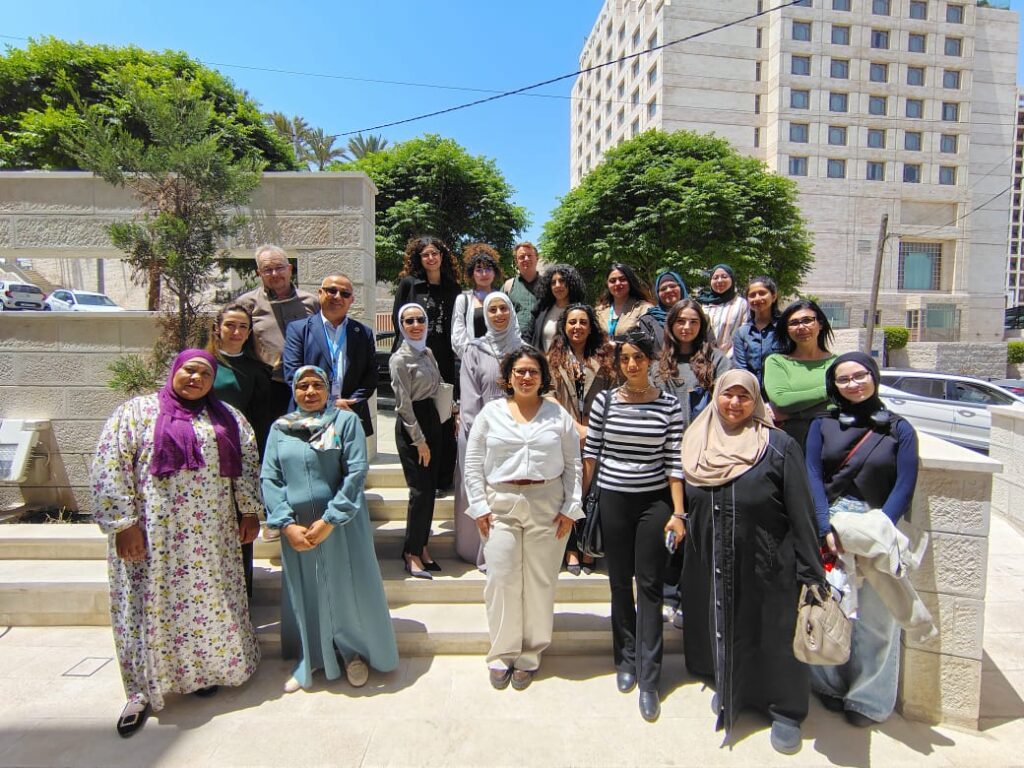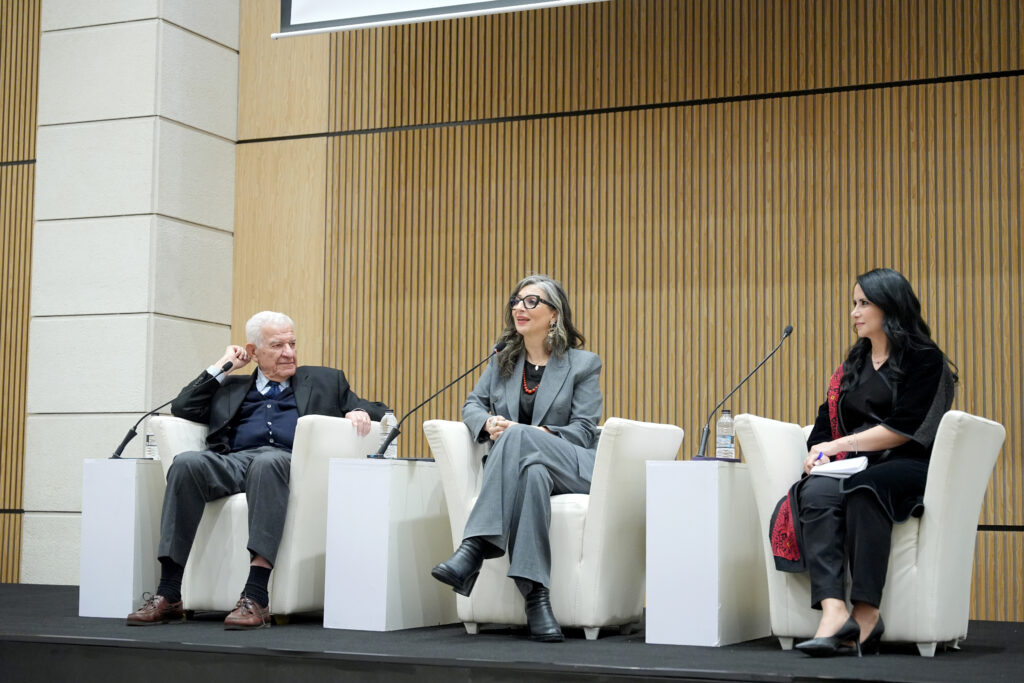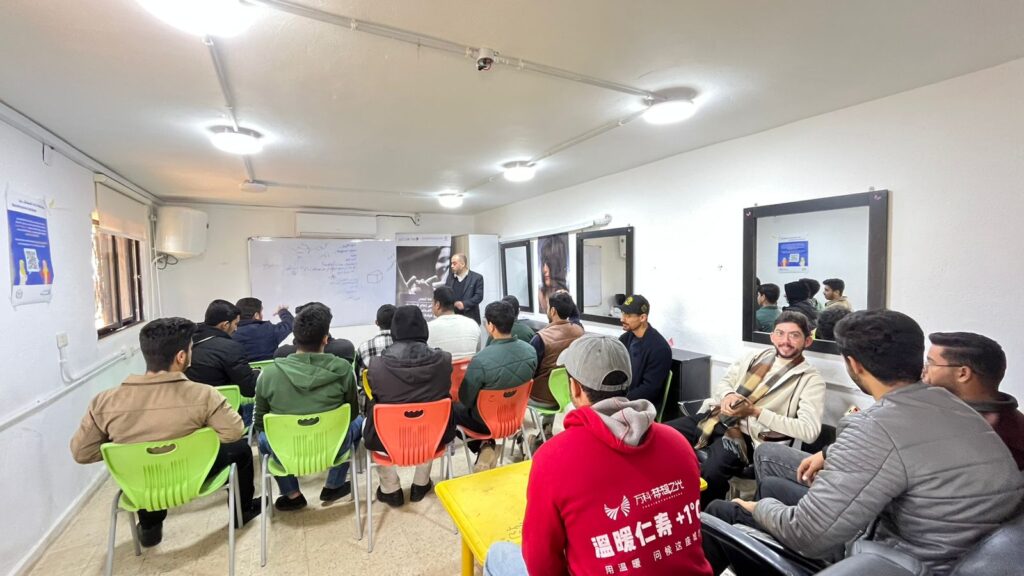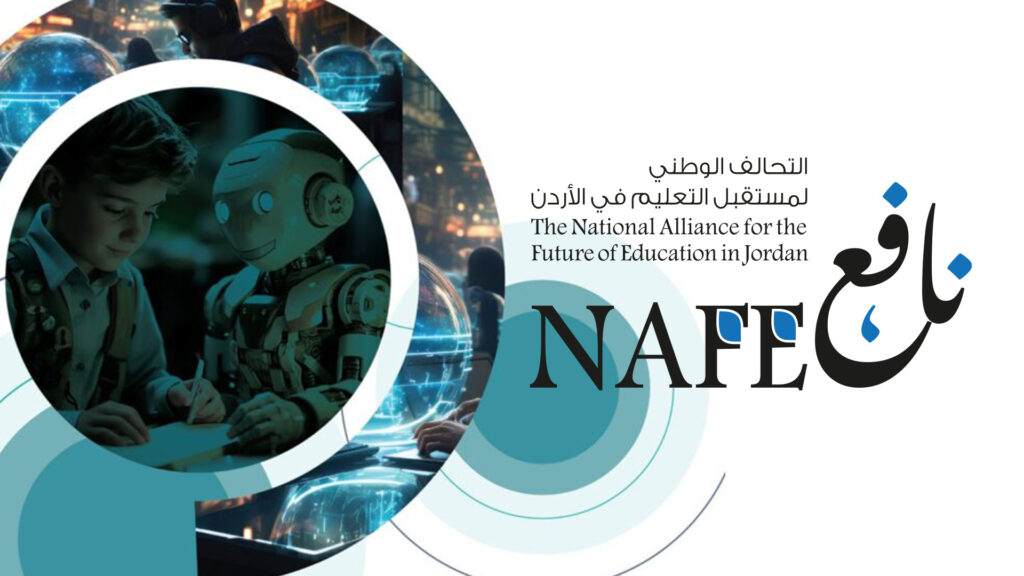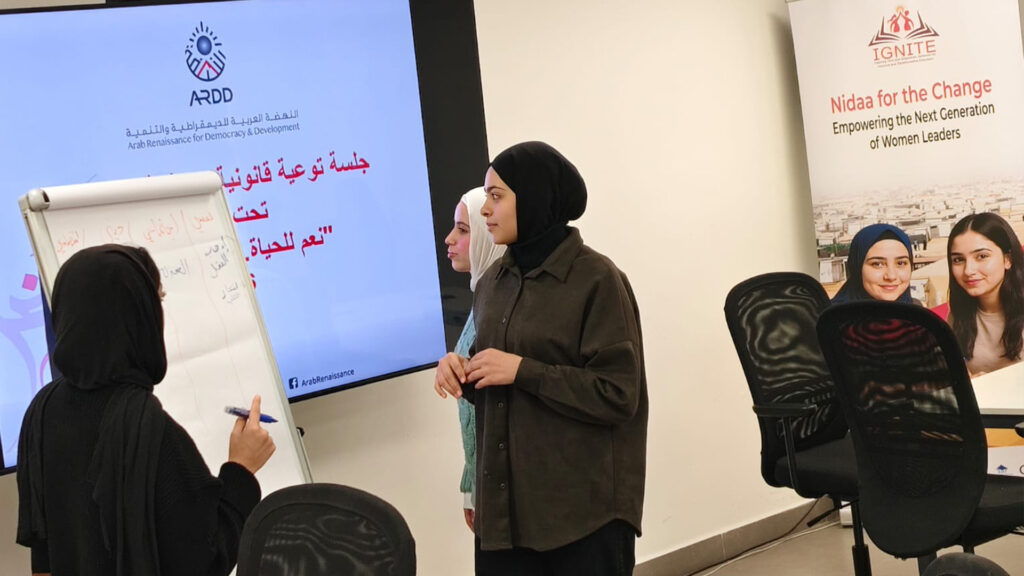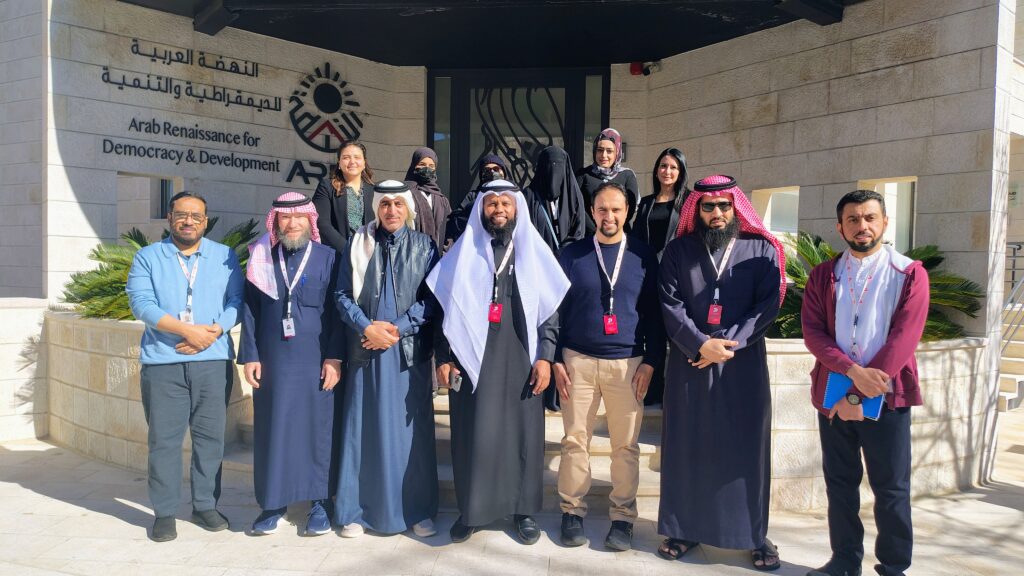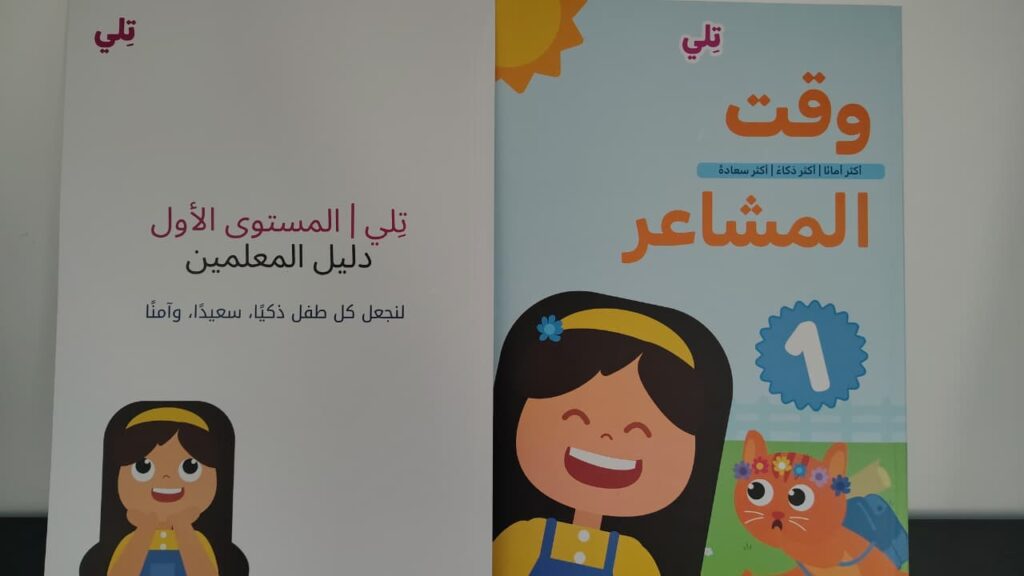ARDD´s Renaissance Strategic Center(RSC) convened a high-level roundtable on Sunday, May 4, 2025, titled “Online Harm, Offline Consequences: Exploring the Barriers to Young Women’s Democratic Participation.” The event brought together activists, young women, experts, civil society representatives, and policymakers to address the growing impact of technology-facilitated violence on young women’s participation in public life.
The roundtable featured the preliminary findings of RSC’s latest research on online violence targeting girls and women, highlighting its tangible consequences for young women’s civic and political engagement in Jordan. This research is part of ARDD’s broader efforts supported by the New Generation (GenG) project’s Fund.
Participants discussed the increasing prevalence of cyberviolence, particularly against young women active in civic and political spaces, and explored the implications of digital threats, defamation, and privacy violations. These forms of harm were identified as key factors in discouraging women from participating in public discourse and decision-making, often leading to self-censorship and disengagement.
The roundtable emphasized the need for inclusive and responsive legal and governance frameworks that can effectively address the challenges of digital violence. Participants also reflected on the structural and cultural barriers that prevent young women from reporting abuse, including fear of public scandal, social stigma, and limited knowledge of reporting mechanisms.
Real-life experiences were shared throughout the session, shedding light on the psychological, social, and professional toll of cyberviolence. The discussion underscored the importance of integrating digital protection education into schools, universities, and professional settings, given the growing reliance of young women on technology for learning and work.
In their concluding remarks, participants stressed the importance of developing national policies that ensure online safety for young women, raising awareness through targeted digital literacy programs, enhancing mechanisms for reporting abusive content on social media, and enhancing the capacities of law enforcement and judicial actors through gender-sensitive training. The conversation also reaffirmed the role of civil society in creating safer digital spaces and supporting young women’s leadership and participation in both online and offline public life.
The roundtable forms part of ARDD’s ongoing commitment to promoting digital rights, inclusive governance, and gender equality in Jordan and across the region.

